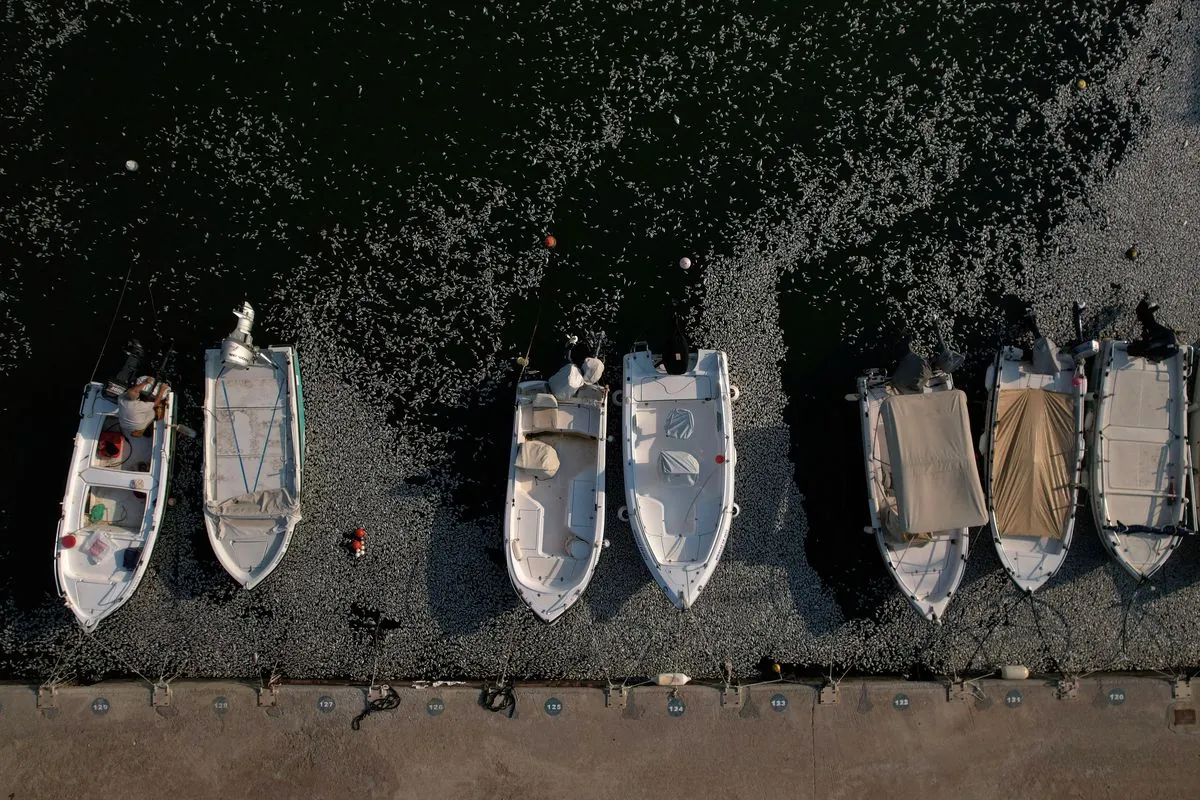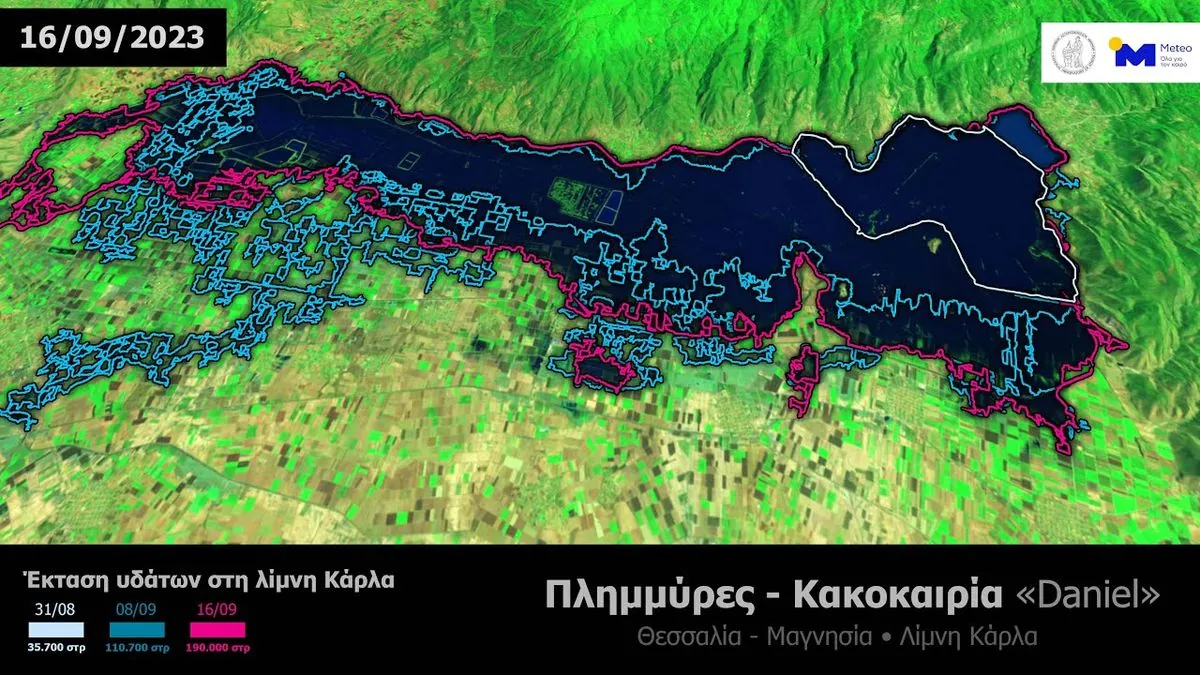Massive Fish Die-Off in Volos: Climate Extremes Take Toll on Greek Coast
Over 100 tons of dead fish collected in Volos, Greece, following extreme weather. The disaster, linked to floods and drought, severely impacts local businesses and tourism, prompting urgent cleanup efforts.

In a stark illustration of climate change's local impacts, the coastal city of Volos in central Greece is grappling with an environmental crisis. Over 100 tons of dead freshwater fish have been collected from the port and surrounding waters, a consequence of extreme weather fluctuations that have battered the region.
The disaster stems from a series of climate-related events. Severe floods in 2023 were followed by months of drought in 2024, creating a perfect storm for the mass die-off. These conditions have particularly affected Lake Karla, located about 320 kilometers north of Athens, which was restored in 2018 as part of one of the largest environmental projects in the Balkans.

The economic repercussions of this ecological disaster are significant. Local businesses, particularly those in the tourism and hospitality sectors, have reported an 80% drop in commercial activity over the past three days. The Volos Chamber of Commerce has announced legal action to seek damages, highlighting the severe blow to the city's tourism industry.
"Businesses along the seafront, particularly in the catering industry, are now suspending operations. A strong stench along the seafront is repulsive to both residents and visitors… delivering a severe blow to tourism in Volos."
Cleanup efforts are underway, with fishing trawlers and earthmovers deployed to remove the dead fish. The carcasses are being transported to an incinerator to prevent further environmental damage. This rapid response is crucial, as mass fish die-offs can lead to water pollution and pose significant health hazards.
The situation has sparked criticism of local authorities. Anna Maria Papadimitriou, the deputy regional governor of Thessaly, described the scale of the problem: "There are millions of dead fish all the way from Lake Karla and 20 kilometers eastward." Meanwhile, the mayor of Volos has accused the regional authority of acting too slowly in addressing the crisis.
This incident underscores the vulnerability of freshwater ecosystems to climate change. Fish are particularly sensitive to changes in water temperature and oxygen levels, making them early indicators of environmental stress. The Mediterranean region, including Greece, is considered a hot spot for climate change impacts, facing increased risks of extreme weather events.
As Volos struggles to recover from this environmental and economic blow, the incident serves as a stark reminder of the need for sustainable water management and climate adaptation strategies. It also highlights the delicate balance between human activities and natural ecosystems, especially in regions rich in both cultural heritage and biodiversity.


































